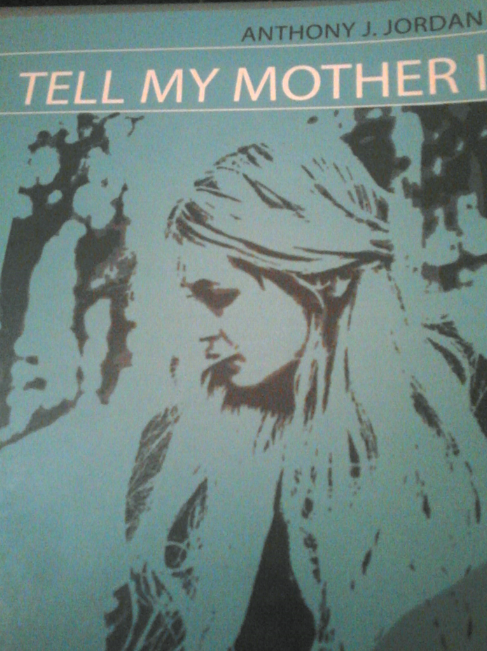
Eoin Meegan
The story of how this book came about, the first novel by Anthony Jordan, is almost as interesting as the book itself. Ostensibly it tells the story of a young girl, Laura Burke, who discovers she is adopted and goes in search of her natural mother only to be rejected by her. In truth, it is the story of a troubled mind and mental illness.
The author tells us in the introduction how he wrote the book many years ago to while away empty afternoons. Then, following one rejection by an English publisher he put the manuscript aside and forgot all about it.
Long story short, many years and several biographies of famous people later, the manuscript came to light again as Anthony was preparing to donate his life’s work to the National Library of Ireland. And so, with a few tweaks, it is available for all to read.
My immediate criticism is that the book looks more like a work in progress than a completed text. It is full of typos and appalling spelling errors, inconsistent typeface, and dialogue not spaced out properly leaving the reader struggling at times to know who exactly is speaking. That aside, the content rewards the reader’s perseverance.
Upon discovering, by accident, that she was adopted Laura develops a desire to find her maternal mother. This in itself is a very natural reaction. How-ever, with Laura it becomes a kind of obsession. She experiences what appear to be catatonic episodes from which she emerges usually with little or no memory of what happened.
Her family are supportive though, so the root cause of the obsession is unclear; it’s almost as if she is incomplete without knowing her maternal mother. Laura is close to her younger sister Majella, but their roles are slightly inverted, and Laura seems to look up to and depend on her. The unquestioned trust isn’t always reciprocated.
The book opens with an incident from Laura’s childhood when she is about to make her First Holy Communion. Laura becomes traumatised when she realises she has forgotten her promise not to eat anything that morning. I’m not sure if this is meant as a psychological trigger for her later behaviour. Certainly as an adult she insists on keeping promises that she shouldn’t. If it is, it’s not a strong enough one.
Her fear of receiving the sacrament is a common one experienced by many children at a time when Ireland was more in the grip of an overbearing church. Perhaps an earlier childhood incident would have been better?
The thing about mental illness is that it is never predictable. People can express in so many different ways; anger, withdrawal, violence, denial, and many more. In Laura’s case it is expressed as naivety and dependency. She is altogether too keen to please those she loves.
There’s quite a lot of ironic play here too. She tells her first lover, Noel Forde, that she doesn’t want to become de-pendent on him, although she is highly dependent, to the point of being docile, on others. Laura becomes a speech therapist, and particularly likes working with children. This despite the fact she never really manages to find her own voice.
Then there is the bizarre en-counter with the bus conductor, variously named Peter O Brien in one place, and Peter O’ Neill in another (this book is screaming for a good proof-reader!) Peter is quite emphatic, egged on by Majella, that Laura will go out with him. To escape her very public humiliation she agrees, and then proceeds to keep her promise. After putting up a bit of resistance she completely capitulates and starts having an affair with him. At times it’s almost like she has no volition of her own.
And while Peter ‘whatever-his-name-is’ may be harmless enough, her next relationship is anything but. One night Laura is given some drug, presumably rohypnol and then raped by a man who has no redeeming qualities in my eyes.
So, of course she reports it to the police and seeks help? NO. Instead our Laura marries him. This is at the behest of Majella and her mother, who persist, to the point of bullying, in her doing so. A married Laura suits their idea of how she should fit in. Laura herself feels nothing but disgust for her new husband.
Weeks after the honeymoon when he asks her to sleep with a well-known politician to help further his own career she can take no more and leaves him. This is the bit in the book where we cheer, after screaming for so long at Laura to stand up for herself.
We so want Laura to be a modern woman, to assert herself, it is the 1980s after all, and otherwise she comes across as an intelligent young woman. But again, we must remember some people have difficulty moving on.
All in all, I found Laura to be a likeable person, and a very genuine person. Sadly, she had no one in her life to reflect that back to her, and I found the ending sad. A short book, and despite some obvious flaws, it is a disturbing story of rejection that needs to be read. It will certainly make you think which, after all, is what books are for.



